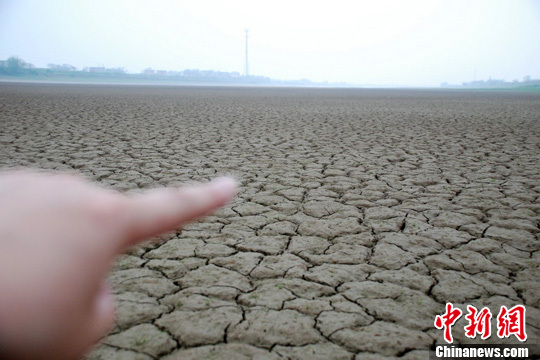Drought has major rivers at record low levels
A severe drought has dropped the water level of major rivers in east China's Jiangxi Province to their lowest point since officials began keeping records, making farming impossible in large areas of paddy fields, even during flood season.
|
|
|
A severe drought has dropped the water level of major rivers in east China's Jiangxi Province. |
Since late March, the drought has affected 6.52 million mu (about 434,667 hectares) of paddy fields in Jiangxi, where precipitation hit a record low in the past few months of this year, said a spokesman with the provincial drought relief headquarters on Wednesday.
|
Don't miss: |
The drought became even worse after the flood season began on April 1, with rainfall since then equal to less than 60 percent of previous years' averages for this period.
Major rivers in Jiangxi, including the Ganjiang River, the second largest tributary of the Yangtze River, and the Fuhe River, which flows into Poyang Lake, recorded their lowest historical level on Wednesday, he said.
The water level of China's largest freshwater lake, Poyang Lake in Jiangxi Province, had also dropped to a record low, authorities said earlier this week.
In Ruijin City, located in one of the province's worst hit southern regions, more than 40 percent of mid-sized and large reservoirs are drying up.
Jiangxi has allocated 56.8 million yuan (8.7 million U.S. dollars) and mobilized over 314,000 people to fight the parching drought, especially when it hit the province during the spring plowing season.
The province has declared a state of emergency in the southern regions and dispatched five work teams to direct drought-relief operations.
Though the drought has severely hurt agriculture, it has not yet led to drinking-water shortages, according to the headquarters.
 0
0 








Go to Forum >>0 Comments